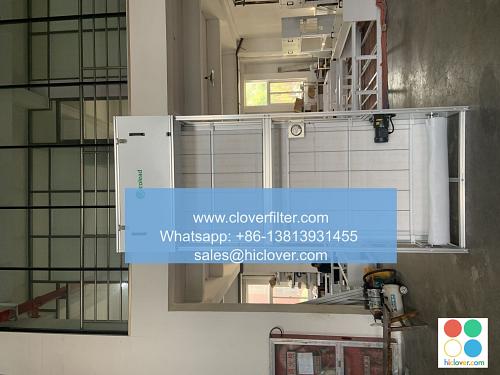The Importance of Air Filtration in Life Sciences Research

Air filtration plays a crucial role in life sciences research, where contamination control and cleanliness are paramount. The quality of air in research laboratories and facilities can have a significant impact on the accuracy and reliability of experimental results. In this article, we will highlight the importance of air filtration systems in various application areas of life sciences research, including cell culture, molecular biology, and pharmaceutical development.
Applications in Cell Culture and Tissue Engineering
In cell culture and tissue engineering, air filtration is essential to prevent contamination of cells and tissues with microorganisms and other particles. HEPA filters (High Efficiency Particulate Air) and ULPA filters (Ultra Low Penetration Air) are commonly used to remove 99.97% of particles as small as 0.3 microns, ensuring a clean and sterile environment for cell growth and development. This is particularly important in regenerative medicine and stem cell research, where cell viability and functionality are critical.
Molecular Biology and Genetic Research
In molecular biology and genetic research, air filtration is crucial to prevent contamination of DNA and RNA samples with exogenous nucleic acids and other substances. PCR (Polymerase Chain Reaction) workstations and laminar flow hoods equipped with HEPA filters are used to create a clean and controlled environment for nucleic acid amplification and analysis. This ensures the accuracy and reliability of genetic analysis and sequencing results.
Pharmaceutical Development and Manufacturing
In pharmaceutical development and manufacturing, air filtration is essential to prevent contamination of active pharmaceutical ingredients (APIs) and finished products with particles and microorganisms. Cleanrooms and controlled environments equipped with HEPA filters and ULPA filters are used to ensure a high level of cleanliness and compliance with regulatory requirements. This is critical in parenteral and sterile manufacturing, where product sterility and patient safety are paramount.
Conclusion
In conclusion, air filtration plays a vital role in life sciences research, where contamination control and cleanliness are essential. By using HEPA filters and ULPA filters, researchers and manufacturers can ensure a clean and controlled environment for various applications, including cell culture, molecular biology, and pharmaceutical development. This highlights the importance of investing in air filtration systems and cleanroom technology to ensure the accuracy, reliability, and compliance of life sciences research and manufacturing.

